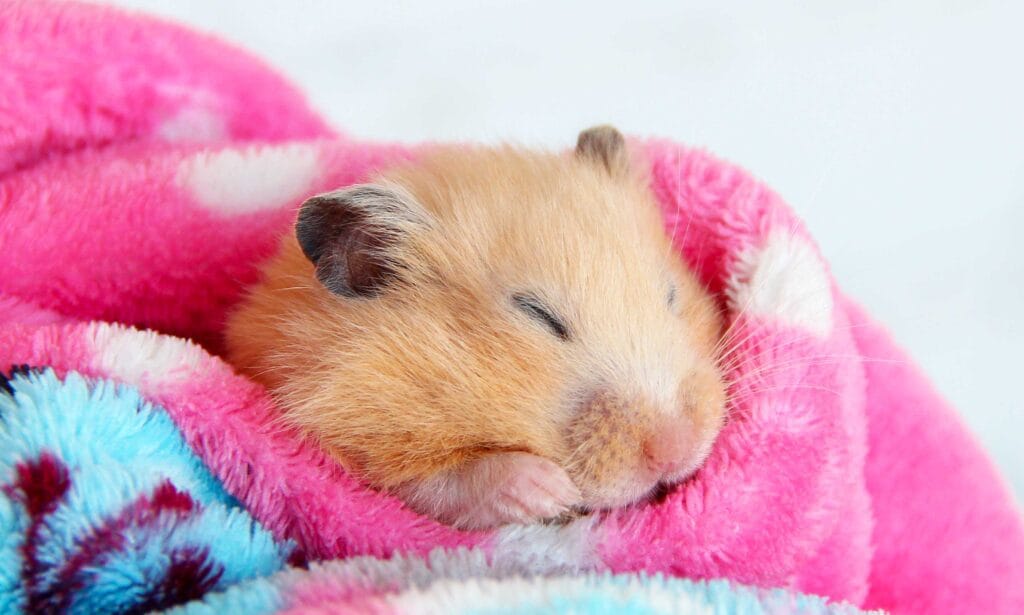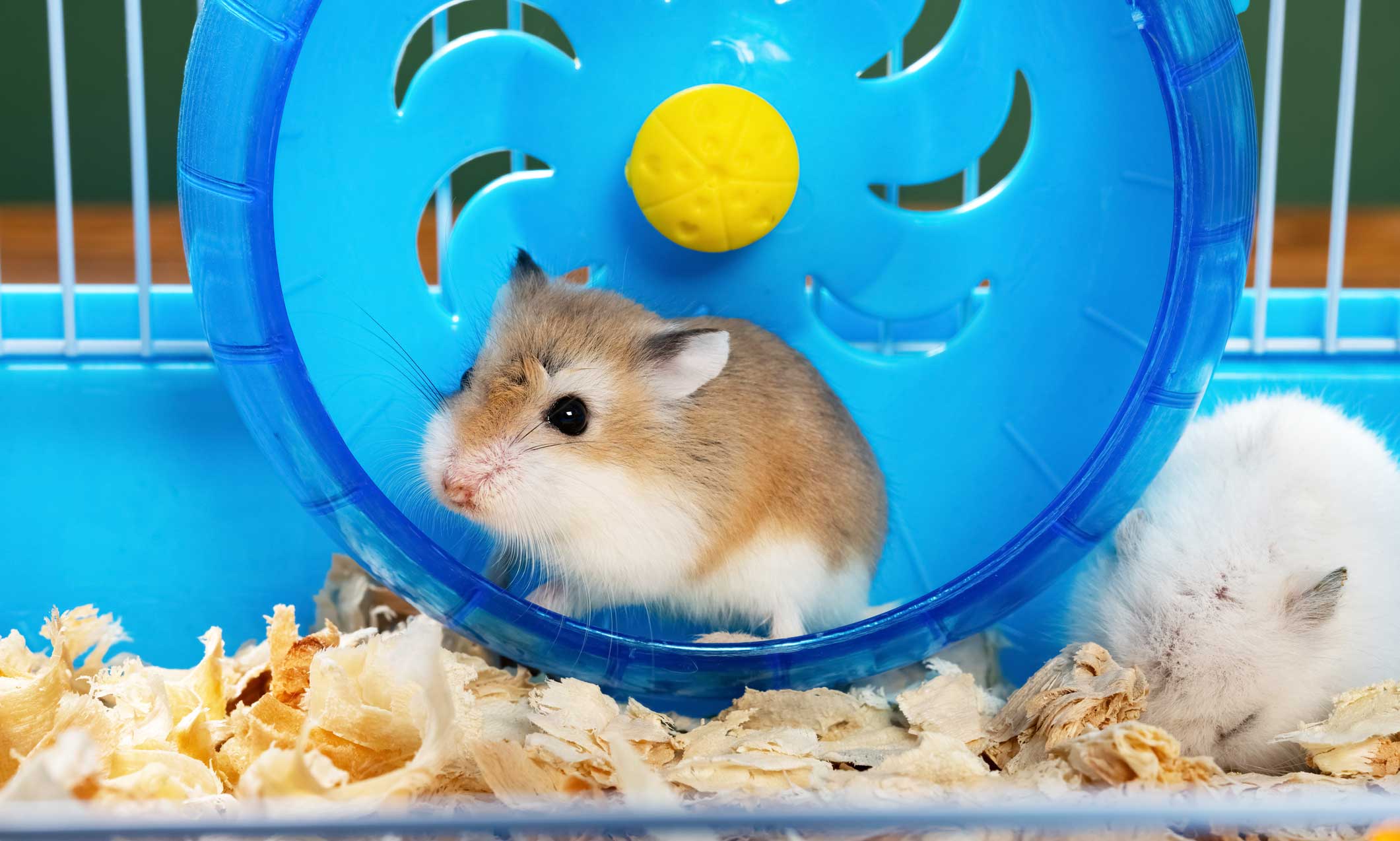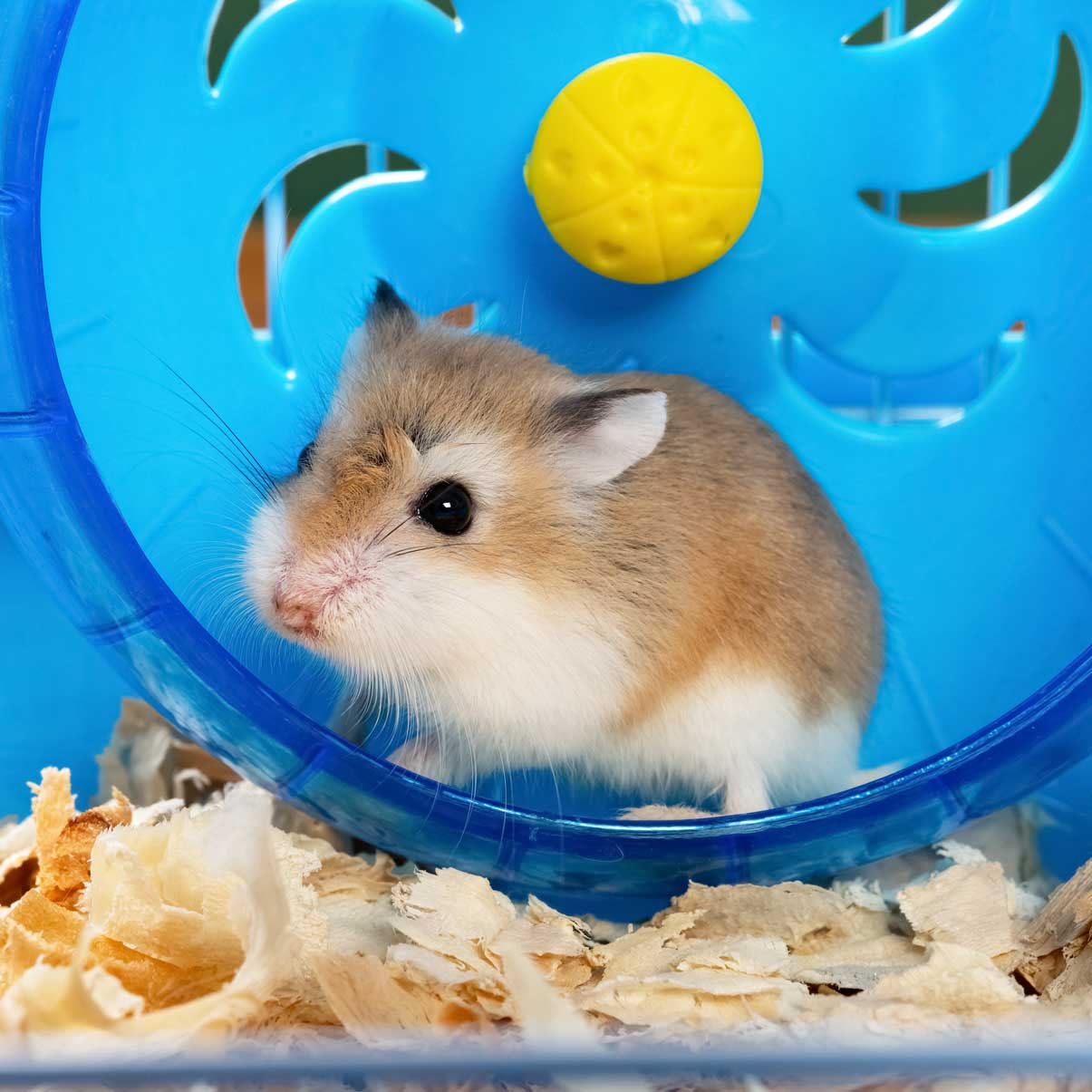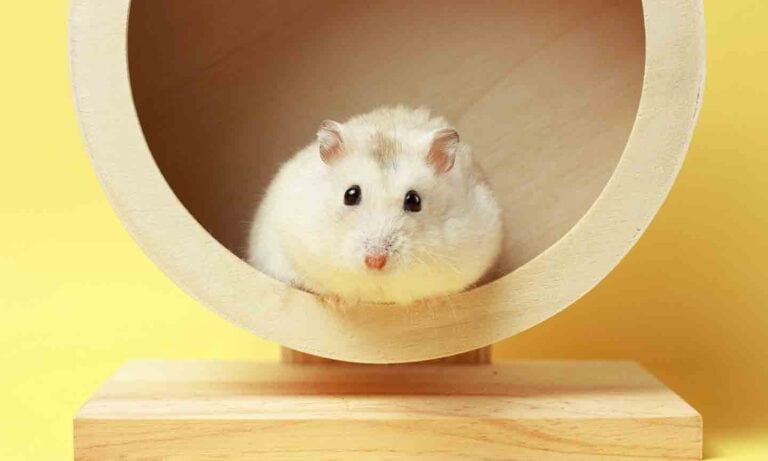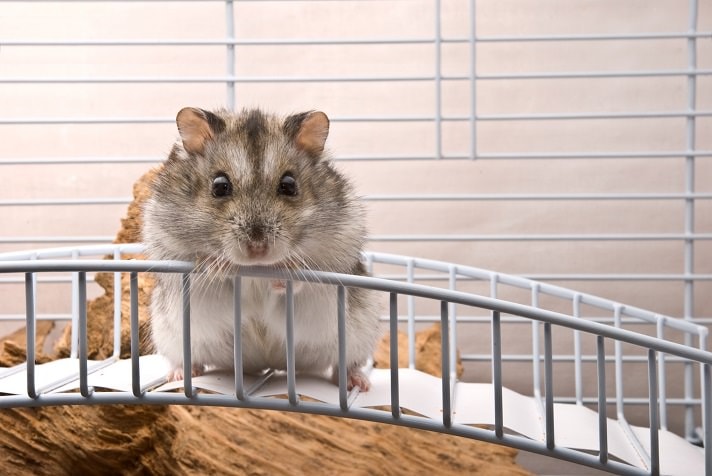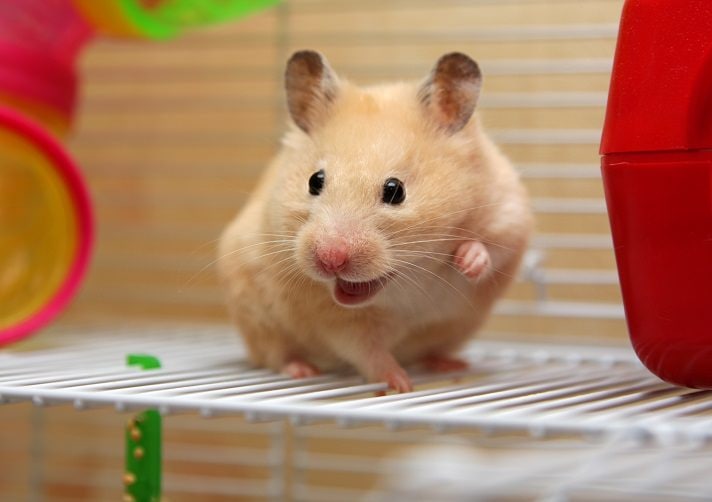Hamsters are often described as nocturnal, and as most of us know, nocturnal animals sleep during the day and are active at night. But are hamsters actually nocturnal? In fact, that’s not exactly an accurate term for a hamster’s sleep and wake cycle. The reality is that hamsters are crepuscular. This means that your pet hamster is active at dusk and dawn.
Understanding and working with a hamster’s sleep schedule is essential to developing a good relationship with this small pet and is part of overall good hamster care. Sleep affects your hammy’s health and longevity. We talked to a few vets to break down what to know about hamster sleep, including their sleep schedules and how to accommodate them.
All About Hamster Sleep
Click to jump to each section.
What Is a Hamster’s Normal Sleep Schedule?
These prey animals naturally wake at night to forage for food, says Dr. Teresa Manucy, DVM, a Chewy pet health representative in Jacksonville, Florida. In the wild, it’s safest to be out and active in the darkness to avoid predators, so wild hamsters get most of their sleep during daylight hours.
Hamsters will wake some during the day to eat and drink water. However, those activities are accomplished in short periods of time. Then, it’s back to sleep!
Hamsters are most active at dusk and dawn. Dusk refers to the period just before dark after sunset, while dawn is the time just before sunrise when the sky starts to brighten.
How Many Hours a Day Does a Hamster Sleep?
Most mammals require sleep to remain healthy and function well, and hamsters are no exception. For a hamster’s health to remain optimal, Dr. Manucy says that pet hamsters require eight hours of sleep every day.
Hamsters don’t need to get that eight hours of sleep in one solid stretch, though.
“[The eight hours] may be acquired in short napping sessions, which occur primarily during the day,” Dr. Manucy says.
Why Do Hamsters Sleep So Much?
What if My Hamster Is Sleeping More Than Usual?
If your pet hamster really is sleeping more than the eight hours typically required, Dr. Manucy says it could be a sign of torpor, the hibernation-like state hamsters experience.
However, sleeping too much may also be a symptom of an illness—and this is something you want to be aware of, so you can get your hamster the appropriate healthcare, if needed.
“Be sure to keep the cage temperature above 50 degrees Fahrenheit and observe any changes in their appetite, stool consistency or respiratory system,” Dr. Manucy says.
Sleep deprivation results in more than just a sleepy hamster. It can affect your pet’s health.
“Not getting enough sleep can lead to stress, which may suppress the immune system and contribute to disease,” Dr. Manucy says.
If you’re doing everything correctly and your hamster is still sleeping too much, take your small pet to the vet ASAP.
Should I Wake My Sleeping Hamster?
You should only wake your sleeping hamster when it’s time for them to naturally wake: when dusk or dawn approaches.
Don’t wake your hamster up when they’re in a deep sleep in the middle of the day just to play with them. While doing so occasionally won’t hurt, waking them up regularly isn’t good for your small pet.
How Do I Accommodate My Hamster’s Sleep Schedule?
Know your hamster’s sleeping habits—and honor them.
It helps to be a night owl yourself if you want to spend time interacting with your hamster. Different types of hamsters have slightly different sleep schedules:
- Dwarf hamsters: are known to be awake occasionally during the day
- Chinese hamsters: also are known to be awake occasionally during the day
- Syrian hamsters: it’s rare for them to be awake during the day
If nights aren’t your thing, a Syrian hamster might not be the right pet hamster for you. Instead, consider a Dwarf hamster or a Chinese hamster.
Trying to alter your hamster’s sleep schedule is stressful for your pet and can cause health issues and unfriendly behavior. A hamster who is disturbed frequently during the day will become cranky and is more likely to bite.
It’s best to learn your hamster’s natural sleep schedule and give your pet the quiet time they need. Play during their waking hours, perhaps before you go to bed at night.
Schedule cage cleaning.
Generally, you should clean your hamster’s cage every week.
Do the cleanings in the evening to disrupt your hamster’s sleep schedule as little as possible.
Be mindful of your hamster’s cage placement and lighting needs.
It’s important to replicate natural day and night cycles, Dr. Manucy says. Your pet hamster’s “natural tendency is to be most active in low to no light time of day.”
- Lights: Don’t keep the lights on just because your hamster is awake at night. Keep your hamster’s home situation as close as possible to the way it would occur in nature.
- Placement: Place your hamster’s cage in a quiet area where they can sleep comfortably during the day. This will also ensure their digging, scratching and wheel-running won’t disturb you in the middle of the night when they’re wide awake.
Create a safe haven for your hamster.
Provide a cozy enclosed space, such as a small box or clay pot turned on its side, where your hamster can sleep.
For example, the Lixit Critter Space Pod Hideout gives small animals a convenient place to burrow, nest, rest or just hang out. An added feature is that it comes apart to make cleaning easy.
Ensure your hamster’s bed is a happy one.
Hamsters love clean bedding, so provide fresh bedding to satisfy your hamster’s natural instinct to burrow and build nests. Choose something absorbent, like Frisco Pine Shaving Small Pet Bedding.
Give your hamster the ability to exercise.
“Hamsters need to exercise to remain healthy, both physically and mentally,” Dr. Manucy says. “An adequate amount of activity will help ensure better sleep routines.”
Place a hamster wheel in your hamster’s cage to allow for continual running—something that’s not otherwise possible in such a small space.
It’s important to ensure that the hamster wheel is the correct size “to prevent injury to the hamster’s spine and feet,” Dr. Manucy says.
You can also use a running disc, which is similar to a wheel but it’s open and tilts at an angle.
FAQs About Hamster Sleep
Q:
What are the signs that my hamster is too sleepy to play?
Q:
What are the signs that my hamster isn’t getting enough sleep in general?
Q:
Are hamster sleep schedules similar to those of gerbils, ferrets and guinea pigs?
Expert input provided by Erin Ramsey, co-president with Melissa Brown of California Hamster Association in Southern California, and owner of Cheeks and Squeaks Hamsters.
Additional reporting by Audrey Pavia.
More about caring for your hamster:
Share:
